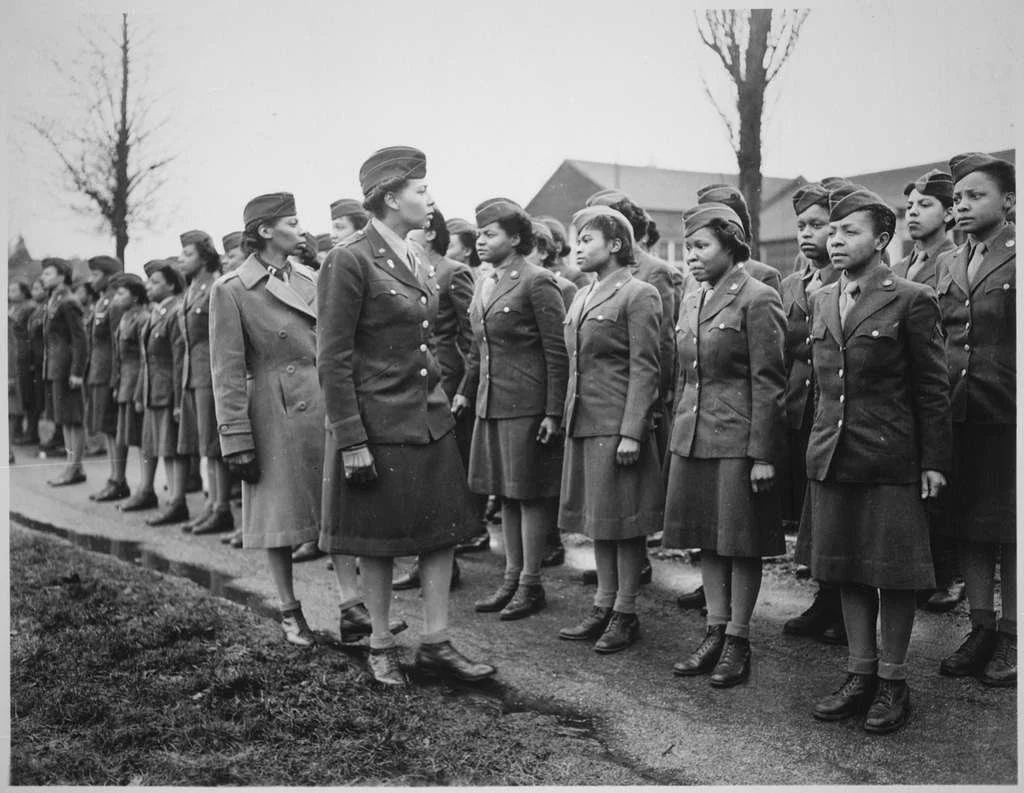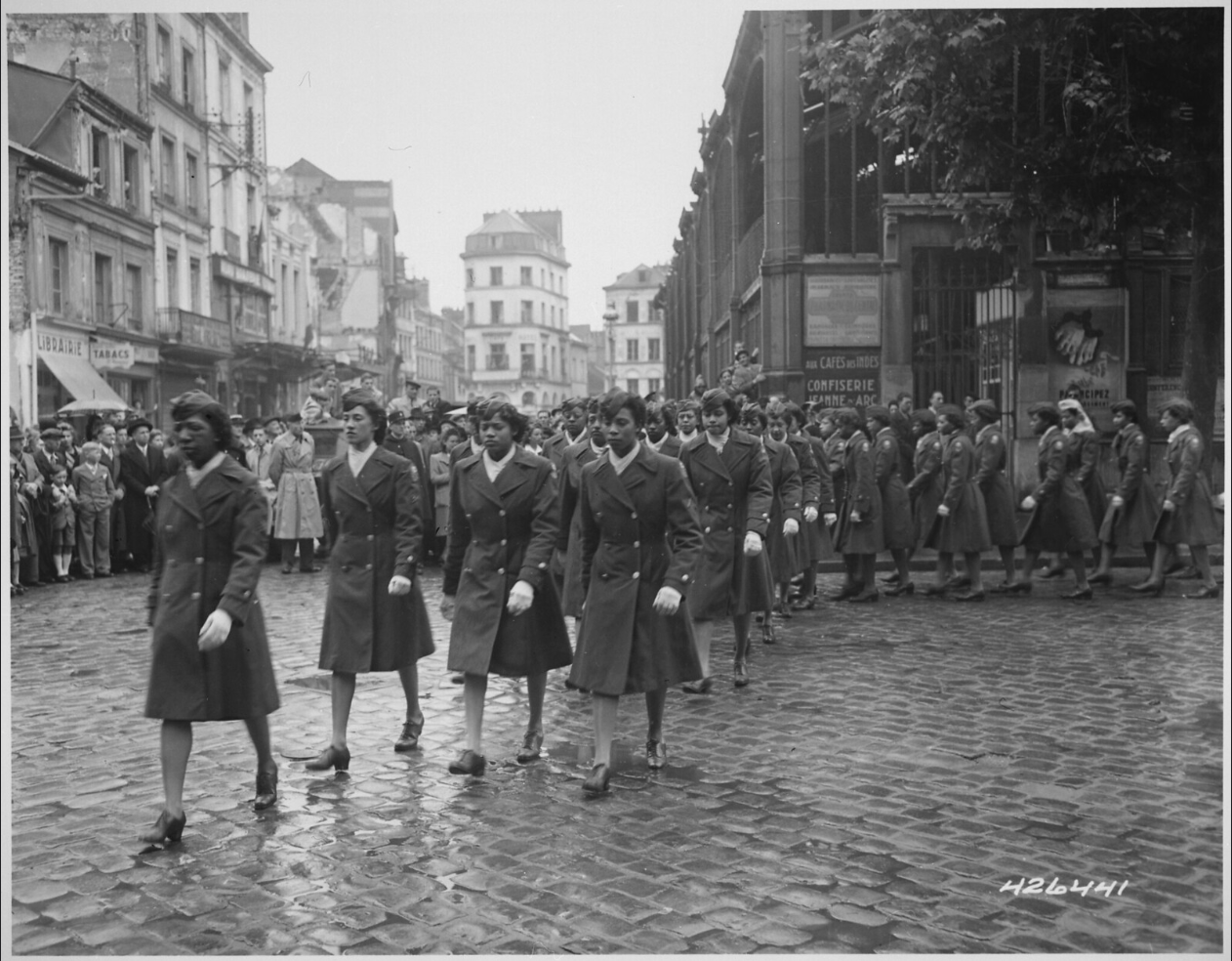The Inspiring Legacy of the Six Triple Eight
By: Alex Nellis
The 6888th battalion’s inspirational efforts during World War II have left a lasting legacy that is still remembered to this day. Better known as the Six Triple Eight, this was the first United States Army battalion featuring all Black women. These heroic women served overseas, and played a vital role in the war.
In 1943, the Women’s Army Corp became officially recognized by the military, following the formation of the Women’s Army Auxiliary the previous year. American civil rights activist Dr. Mary McLeod Bethune fought to ensure Black women were also able to enlist alongside their white counterparts.
In 1945, the U.S. Armed Forces realized they had a major problem: over 17 million pieces of mail were currently undelivered. In a time where mail was the only form of communication for those fighting overseas, extreme delays of over six months were causing significant hardships for soldiers and civilians alike. Without reliable access to their mail, families had no way of knowing if their loved ones at war were still alive. In addition, the mail backlog also led to poor morale for soldiers, who had no way to communicate with their families.
The Six Triple Eight officially formed in 1945, and featured 31 officers and 824 enlisted members. They were the only all-Black United States Army battalion to serve overseas during World War II. The Six Triple Eight were given the task of sorting and delivering the 17 million pieces of backlogged mail. On their way to England to sort the mail, the battalion was forced to flee after a deadly incident involving a German rocket.
Following this harrowing trip, the women began the grueling process of sorting through the mail. Faced with a daunting project, the women singlehandedly developed a tracking system which expedited the process of delivering mail. The tracking system involved seven million complex informational cards designed to identify each soldier. Following development of the system, the battalion began investigating wrongly addressed mail and redirecting any mail that was undeliverable. During each shift, the battalion was able to process an astounding 65,000 pieces of mail.
Throughout this process, the Six Triple Eight faced significant barriers due to racist actions from other servicemen, and the systemic racism present within Army regulations. Many incidents arose from the racial segregation of common spaces during off hours. Black battalions were barred from using main Army facilities. They were also turned away by the Red Cross from using any of the same living spaces, and were forced to live with English families due to the lack of accommodations.
Despite the discrimination and poor treatment from a number of generals, the Six Triple Eight persevered and cleared the massive backlog in just three months. With the backlog cleared, soldiers were finally able to communicate with their loved ones at home in a timely manner. Following their success, the Six Triple Eight were asked to help clear the backlog of another mail facility in France. Again, they succeeded, and fully cleared the backlog again in three months.
When the Six Triple Eight returned home in 1946, they received little recognition. The group’s one major accomplishment during the span of the war was Charity Adams being promoted to Lieutenant Colonel. It was not until many decades later that the group began receiving recognition for their efforts in the war.
In 2018, a monument was built in their honor in Fort Leavenworth in Kansas. The troop has also received prestigious awards in recent years, including the Meritorious Unit Commendation in 2019, and the Congressional Gold Medal in 2022.
In 2024, Netflix released a documentary on the Six Triple Eight featuring award-winning actresses Kerry Washington, Oprah Winfrey, and many others. The film and its cast received critical acclaim, and won a number of honors at the Black Reel Awards, Celebration of Cinema and Television, and the NAACP Image Awards.
After decades without sufficient acknowledgement, the battalion’s heroic acts in 1945 are finally beginning to get the recognition they deserve. Lifting up the stories of underrepresented communities is one of Planting People Growing Justice’s core goals. The Six Triple Eight’s heroic legacy perfectly highlights why understanding the historical significance of events like these continues to be so important.
Check out the Planting People Growing Justice Leadership Institute website for more information about our programs and services. Follow us on social media for updates about the project at Planting People Growing Justice Leadership Institute.
Be sure to support Planting People Growing Justice Leadership Institute’s current campaign #ICHOOSETORISE! Support Black excellence and education with R.I.S.E.: The Card Game. Join the movement here.
Pre-order books from Planting People Growing Justice’s fall 2025 collection now featuring books filled with imaginative stories for the young readers in your life. Pre-order now to ensure you’re one of the first to receive the new books when they release.



